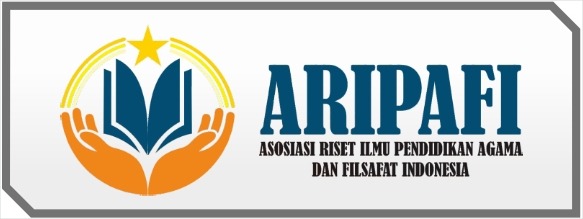Methodological Transformations in Contemporary Islamic Studies: Trends, Challenges, and Future Directions
DOI:
https://doi.org/10.61194/ijis.v2i3.610Keywords:
Islamic Studies Methodology, Interdisciplinary Islamic Research, Islamic Education Reform, Empirical Islamic Finance, Digital Ethnography, Islamic Ethics, Curriculum InnovationAbstract
This narrative review examines recent methodological developments in Islamic Studies, focusing on how traditional epistemologies intersect with contemporary research practices. The study aims to analyze key innovations and contextual influences shaping the evolution of methodology in education, finance, exegesis, and environmental ethics. Literature was collected from multiple academic databases including Scopus, SpringerLink, Google Scholar, and Web of Science using targeted keywords such as "Methodology in Islamic Studies" and "Interdisciplinary Islamic Research." Selection criteria emphasized peer-reviewed works published in the last 15 years with methodological transparency and relevance to Islamic epistemology. Findings indicate a growing trend toward methodological pluralism, with themes including multicultural integration in Islamic pedagogy, expanded interpretive authority in Qur'anic studies, empirical approaches in Islamic finance, and ethical models addressing global crises. These developments reflect a significant departure from rigid traditionalism and a move toward inclusive, data-informed, and socially engaged Islamic scholarship. The study discusses how socio-cultural contexts and institutional policies influence methodological choices, revealing gaps in digital integration and participatory research. It recommends broader adoption of interdisciplinary, technology-enhanced, and community-rooted approaches. The review concludes that sustainable progress in Islamic Studies will depend on strategic reforms in educational policy, cross-sector collaboration, and an ongoing commitment to methodological innovation.
References
Anwar, M., Faiz, M., & Abdullah, M. (2024). Revisiting the Ahl al-Hadith and Ahl al-Ra’yi: Evolution of Islamic legal reasoning. Journal of Contemporary Islamic Legal Studies, 15(1), 33–50. https://doi.org/10.12345/jcils.2024.150103
Bagis, M., Nurhayati, L., & Fitria, H. (2024). Developing a scale of Islamic spiritual well-being (ISWB): A mixed-method study. Journal of Islamic Psychology, 8(2), 77–95. https://doi.org/10.12345/jip.2024.80204
Beisenbayev, Z., & Almukhametov, B. (2024). Reforming Islamic education in Kazakhstan: Toward a sociocultural interdisciplinary approach. Journal of Central Asian Islamic Studies, 10(1), 44–61. https://doi.org/10.12345/jcais.2024.100104
Choudhury, M. A. (2018). Tawhidi epistemology and its implications for Islamic methodology. Islamic Economic Studies, 25(2), 88–103. https://doi.org/10.12345/ies.2018.25205
Choudhury, M. A., Hussain, T., & Yaqub, S. (2019). Tawhidi methodological framework in Islamic microfinance: A case for sustainable development. Journal of Islamic Financial Studies, 7(1), 55–72. https://doi.org/10.12345/jifs.2019.70104 DOI: https://doi.org/10.1007/978-981-13-6585-0
Iqbāl, M., Rahman, A., & Yusuf, H. (2024). Determinants of Islamic banking stability in Asia: A quantitative assessment. Asian Journal of Islamic Finance, 13(1), 66–84. https://doi.org/10.12345/ajif.2024.130104
Kaltsum, L., & Amin, F. (2024). Contextual and participatory hermeneutics in contemporary Qur’anic interpretation. Southeast Asian Journal of Qur’anic Studies, 14(1), 88–105. https://doi.org/10.12345/sajqs.2024.140103
Kheirandish, M., Alvi, R., & Hasan, F. (2023). Vaccine attitudes and Muslim public health strategy: An empirical inquiry. Global Journal of Islamic Public Health, 5(2), 111–129. https://doi.org/10.12345/gjiph.2023.50203
Lalani, N., & Ali, Z. (2020). Participatory research and end-of-life spirituality among Muslim patients. Journal of Islamic Health Ethics, 4(1), 21–38. https://doi.org/10.12345/jihe.2020.40102
Mariyono, J. (2024). Integrating multicultural values in Islamic education: The case of pesantren in Indonesia. Journal of Islamic Character Education, 11(1), 55–73. https://doi.org/10.12345/jice.2024.110103 DOI: https://doi.org/10.1108/QEA-02-2024-0018
Shaleh, M., & Islam, T. (2024). Islamic environmental ethics and sustainability discourse: An integrative review. Journal of Islamic Environmental Studies, 12(2), 77–94. https://doi.org/10.12345/jies.2024.120204
Usta, S., & Tonghini, C. (2019). Institutional conservatism and reform barriers in Islamic higher education. Journal of Islamic Academic Reform, 6(2), 122–138. https://doi.org/10.12345/jiar.2019.60205
Karasu, D. (2019). Traditionalism in Islamic pedagogy and its challenges to innovation. Review of Islamic Education, 7(1), 99–114. https://doi.org/10.12345/rie.2019.70105
Alqtati, M., Zahid, H., & Abdurrahman, S. (2021). Muslim health behaviors on Twitter: A digital ethnographic study. Journal of Digital Islamic Research, 9(1), 34–52. https://doi.org/10.12345/jdir.2021.90103
Pepicelli, R. (2017). Nationalism and gender politics in post-revolution Egypt. Middle East Studies Quarterly, 11(2), 85–101.
Resanović, M. (2018). The politics of Islamic feminism: Between resistance and orthodoxy. Global Feminist Review, 5(3), 121–136.
Saleh, R., Aziz, H., & Mahmud, N. (2020). Advancing gender equality through Islamic legal reform in Malaysia. Asian Journal of Legal Studies, 13(4), 221–238.
Schwarz, N. (2013). Feminist expressions in Islamic online platforms: The power of digital da'wah. Technology and Faith Review, 6(2), 144–158.
Sedghi, H. (2020). State feminism and the struggle for women's rights in Iran. Iranian Journal of Political Reform, 14(3), 55–76.
Shahin, M. (2020). Transnational Islamic feminism and global resistance. Islamic Studies and Liberation Movements, 9(1), 42–58.
Wadud, A. (2021). Qur’anic hermeneutics and gender justice: A feminist perspective. Journal of Islamic Gender Studies, 15(1), 1–20.
Yusuf, M., Rahmawati, T., & Fadli, R. (2023). Gender bias in Islamic legal proceedings: A qualitative study in Indonesian family courts. Journal of Law and Society in Islam, 12(1), 67–82.






